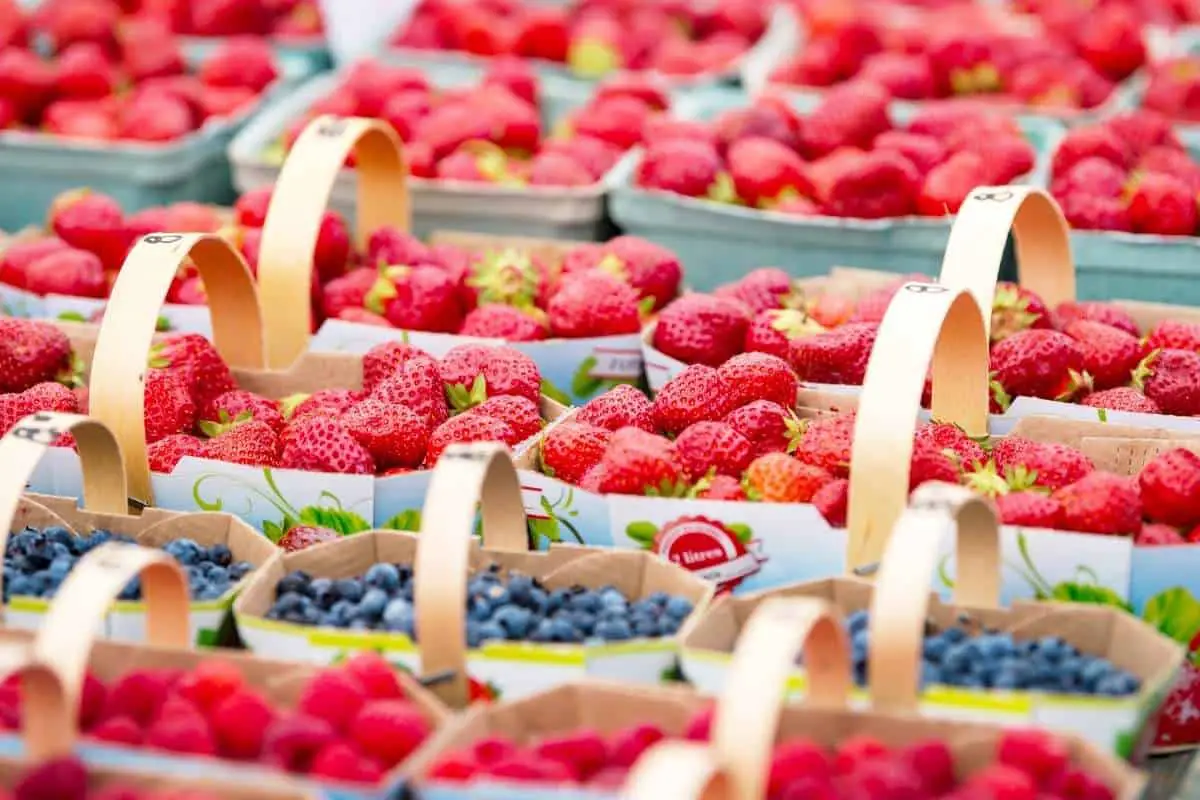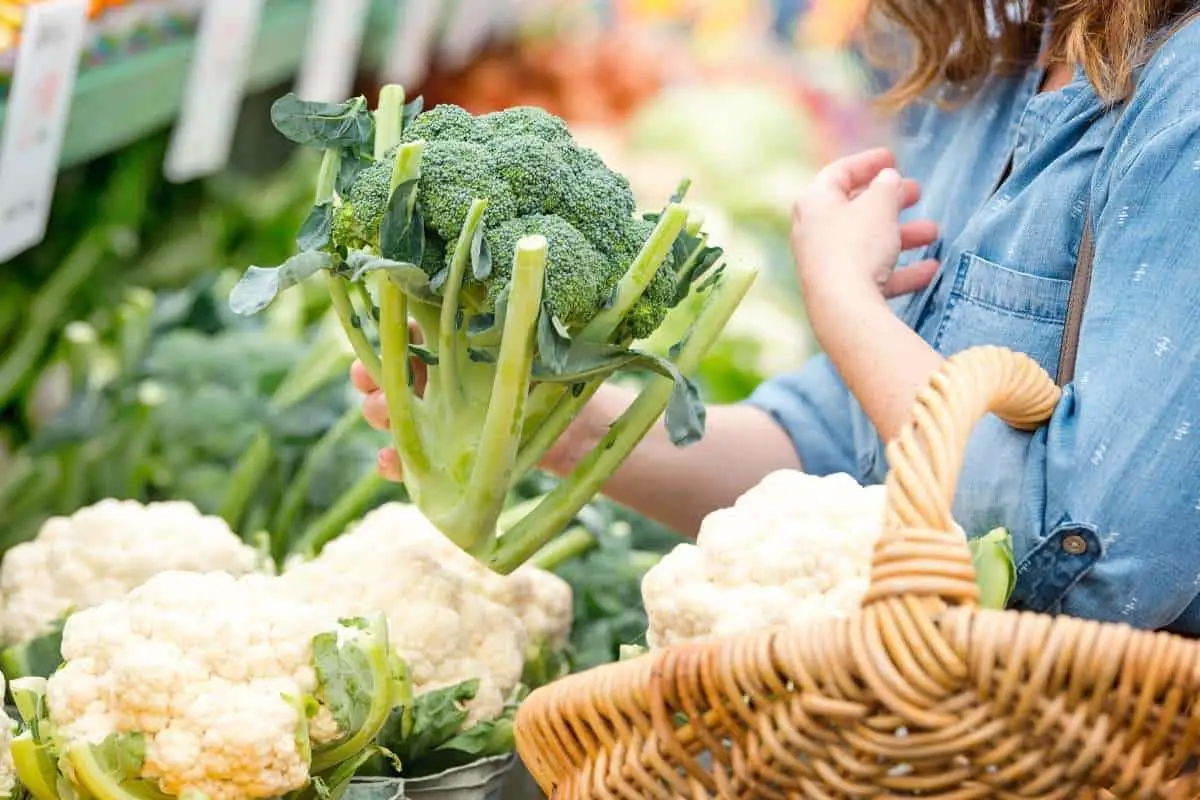Almost a third of the food created in the United States will be thrown away. Food waste is a huge issue for most families. You’re paying more money than you need to on groceries and throwing away tons of food that you could have eaten.
The average American family throws out 15% of their groceries every month before the food is prepared and throws away more food as uneaten leftovers. Not great.
And when food goes in the trash, money goes in the trash. Finding simple ways to avoid food waste in your home every week can add up to significant savings. It’s easy to create bad habits that result in food waste, but there are plenty of ways to avoid it.
Here are the most practical ways to save money avoid food waste at home.

In the kitchen: storage and preparation
To avoid food waste in the kitchen, you first need to understand how different foods spoil. According to the USDA, most meat, poultry, fish, and shellfish last for one to two days after being prepared or cooked. Dairy products will last for up to five days when placed inside a refrigerator at 40 degrees or below.
Many fresh fruits and vegetables will stay fresh for one week at the most in the fridge.
The point is, we have a limited window to eat fresh foods. Let’s make the most of what we have!
Stock your pantry with the basics
Having a well-stocked pantry of staples makes sure that when you stumble on half a carton of strawberries, you have the rest of the ingredients to make something with them. Having a well-stocked pantry can save you money in the long run.
You don’t need to go out and buy every ingredient on earth, but keep some flour, sugar, yeast, dried beans, rice, baking soda and powder, and basic seasonings on hand.
These ingredients are the building blocks of many recipes.
Be sensible at the grocery store
Make a list, and stick to it. When you find something that’s a great deal, think before you stock up. It’s not such a great deal if you don’t like it, can’t get through it fast enough, or forget about it.
Never go to the grocery store hungry, or you’ll walk out with strange things you’ll never eat.
Remember that the objective of the grocery store is to make you buy more. If this is a problem for you, make sure to shop with people who won’t let you buy 10 pounds of wild rice.
Don’t be afraid to put stuff back if you get to the checkout and realize you don’t really want something.
The absolute best way to avoid impulse grocery shopping? Order your groceries online and pick them up. Even if you have to pay a small fee, you’ll probably end up saving money in the long run because you aren’t buying weird stuff.
Start with a realistic meal plan
Planning a week of meals allows you to use everything before it goes bad. Planning your meals minimizes food waste because you’ll make sure to get every drop of juice out of that orange and use up those last couple of cherry tomatoes. It will also help you avoid overbuying ingredients, which is another common cause of food waste.
Store food properly
There is a right and wrong way to store your food. Some tips:
Store apples separate from other produce because apples emit a gas that can cause other produce to spoil.
Store brown sugar in an airtight container, or it will harden and be difficult to scoop out. If you have hard brown sugar, soften it by placing a slice of fresh bread on top– the moisture will seep through.
Ensure your refrigerator is running at the proper temperature, but don’t let it go below 33 degrees. Anything lower, and you’ll risk freezing your food, which changes the texture and can make it go bad more quickly.
Document your waste
Keep a “waste log.” It is absolutely shocking how much food most of us throw away, and seeing it written down can shame you into changing your ways.
A waste log or waste journal can be just a piece of scrap paper with a few notes.
You’ll also notice patterns, such as constantly throwing out heads of lettuce (guilty).
Inventory your fridge
Before you shop for food or cook dinner, take a look at what’s in your fridge. You’ll get rid of a lot of waste without making any extra trips to the store.
This is especially important if you have a deep refrigerator or freezer because you can’t see everything (e.g., jams in the back of the fridge). Just take a minute at some point during your day to look through the whole thing, so you know what’s going on in there.
Keeping your fridge organized will also mean you’ll grab the food that’s still good before it gets lost.
It will be worth the trouble.
Make the most of leftovers
Most of us complain about buying food and complain about cooking food. And then, we throw out about half of the food we’ve bought and prepared. Throwing away leftovers is madness!
Plan leftovers for dinner every 3-4 days. Set two designated days of the week that are leftover nights. If you’re worried about not having enough food, everyone can have a sandwich or cereal if things get really dire.
Eating your leftovers is one of the most important ways to avoid food waste and save money in the kitchen.
Don’t be picky! Don’t let it go to waste! Even if you have a hard-boiled egg, a cucumber, and some sliced cheese, that can be a perfectly fine meal.
Save your scraps

Some things that we think of as food waste can be eaten. You can turn veggie scraps, meat bones, and more into soups and stocks.
Even if you’re not good at cooking, making a large pot of soup is much simpler than you might think. You can honestly keep a large container in the freezer, put your veggie scraps and chicken bones, and boil it with water for a few hours.
Strain the solids, and you have a perfectly respectable chicken broth that can be the base for many recipes. And it was free!
Plan to reduce food waste
Going to be out for the day? Pack a lunch to use up some leftovers and make sure they don’t go to waste.
Busy week ahead? Spend a few minutes on Sunday prepping some of your food to make sure you actually consume it. We’ve all been overwhelmed by a whole chicken and bag of sweet potatoes and decided to give up and order a pizza.
Buying a weird ingredient like buttermilk? Find another recipe to use up the rest of it later in the week.
Right-size your purchases
If you’re a big family, of course, you need to buy those 25-pound bags of apples and huge bags of chips, right?
Not necessarily. If you don’t eat what you buy, you are wasting food and money.
Try buying smaller bags of produce with a shorter shelf life, and buy more frequently. As you get a handle on how much your family really eats and how long things will keep, you can start buying in bulk.
Bulk shopping is actually a great way to waste less food. But buying the right amount of food is better than buying something you won’t use, and it will cost you less money overall.
Preserve your excess food
Before you toss an orange or tomato, get creative! Here are some easy and cheap ways to preserve your excess food.
Freeze fruit that is about to go bad for smoothies, sorbets, and more. Make jam with raspberries that would otherwise be wasted (or freeze them for another time).
Make pudding out of milk that you might not drink in time.
Eat highly perishable items first
Certain foods just don’t keep well. Berries, greens, and seafood have a short shelf life.
Don’t buy those things if you don’t plan on eating them within a few days from when you get home.
Understand sell-by and best-by dates
Many manufacturers put different labels on foods, such as “sell by” or “use by.” These dates help markets know when to rotate their stock, but they can be confusing for consumers.
Sell-by dates are for the grocery store. The date on the label means it has to be sold by a certain day before that area is restocked. This does not mean that the food is no good after this date; in fact, most foods (if they’re stored properly) will last at least a week after this date.
Best-by dates are more about quality than safety, though it’s always better to eat food before it reaches the best-by date as there is a slight chance something could go wrong (such as spoilage).
If you have many items past their sell-by or best-by date, you’re probably just buying too much. Cool it.
Switch to less-perishable forms of food, like frozen or powdered
Powdered milk, frozen vegetables, and canned items have a long shelf life and allow you to stock up without being wasteful.
Compost
If all else fails, give your food a new chance at life by composting it. You can put produce peels and many other waste items such as eggshells and coffee grounds in a compost pile to help you grow your own fruits and vegetables.
(Which, of course, you will not waste.)
Reduce food waste at home with one big change
There are many ways to avoid food waste in your home, but the simplest is also one of the most effective. Eat your leftovers.
If that’s the only thing on this list you can do, it’s probably good enough.
Good luck! Now please go check your fridge.

